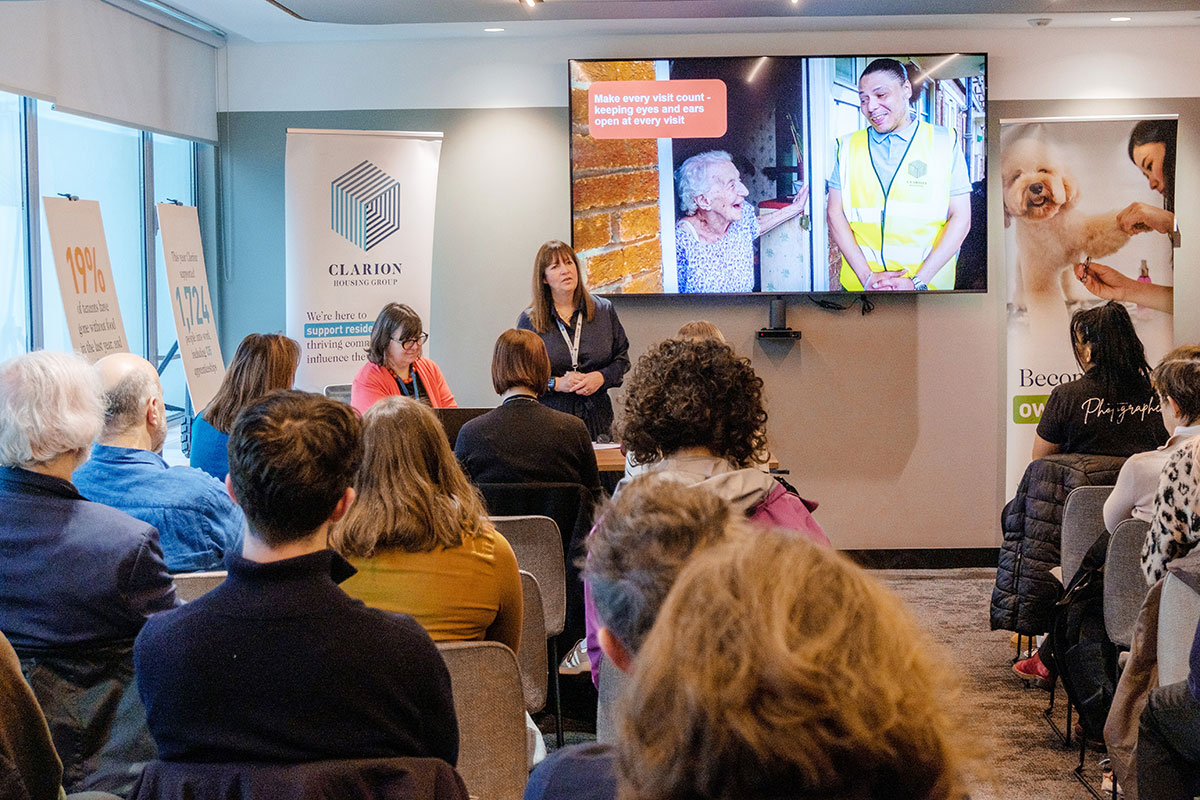You are viewing 1 of your 1 free articles
 Jules Birch
Jules BirchThere are no easy answers to the ‘trilemma’ faced by housing organisations
A recent conference on housing brought home the triple challenge faced by organisations trying to battle the housing crisis. Jules Birch explains more
The pace of change in housing seems to accelerate every year, especially in the past decade.
There may be better-known conferences than the one organised by the Housing Studies Association – but there are few, if any, that give you a better opportunity to try to make sense of it all.
This year’s conference was held in Sheffield last month, and its theme was ‘Home Struggles: Politics, Marginality and Resistance in the Contest for Housing’.
This was a title designed to cover everything from the financialisation and homelessness we are familiar with in Britain to the more informal struggles associated with the global south.
The conference brings together the growing number of academics working on housing issues from this country and overseas, but housing professionals and tenants were also in the audience, with papers of their own.
The resistance side was heavily in evidence with the launches of Stuart Hodkinson’s new book Safe as Houses, on the impact of the private finance initiative and the aftermath of Grenfell, and the new Radical Housing Journal, which aims to bring scholars and activists together to cover housing struggles around the world.
Deborah Garvie, policy manager at Shelter, spoke about housing at the margins, arguing that the problem lies in the government not accepting that homelessness is a housing issue.
Temporary accommodation has become the new social housing, she argued, pointing out that the cost of out-of-area placements has risen by 170% in the past 10 years.
“Housing professionals and tenants were also in the audience, with papers of their own”
The final plenary brought together Michele Lancione, one of the collective behind the Radical Housing Journal, speaking about taking the struggle “beyond rights and into the cracks” of marginalised groups, and Dan Wilson-Craw of Generation Rent, speaking on the growth of the renter movement in the UK just days before the government moved on one of its major demands, the end of Section 21.
But this is a conference that brings together more strands about housing than any other and I was also following the way that sessions on social housing highlighted another emerging research theme: the plight of housing professionals and housing organisations caught between that rising political resistance and increasing commercial and financial pressure.
The interest here is in what Tony Manzi of Sheffield Hallam University called the “dilemmas of practice” for those caught in the middle of welfare reform and commercialisation.
The Social Housing Green Paper was the first time in decades that the government has admitted that stigma is a problem in social housing, he said, but it is not admitting its own role in it.
Ruth Lucas of the University of Sheffield spoke about her PhD research (backed by the Chartered Institute of Housing) on strategic leaders in social housing.
Rapid change in the sector has implications for the skills and competencies of housing professionals and for career trajectories, she said, but is the sector providing leaders? And, if not, where are they coming from?
A paper on Universal Credit by Ian Wilson of Sheffield Hallam University highlighted those pressures on the sector as the new benefit reduces affordability and increases tenants’ debts.
One stat really brought this home for me: half of the households on housing benefit in his research (based on the Department for Work and Pensions’ Family Resources Survey) had an income of less than £15,600, which means their rent needs to be less than £90 a week to be affordable (using the standard measure of housing costs being no more than 30% of net household income). Where does that leave social renting?
The sense was that we are only in the early stages in assessing the impact, meaning and implications of these trends.
“The Social Housing Green Paper was the first time in decades that the government has admitted that stigma is a problem in social housing, he said, but it is not admitting its own role in it”
Two related papers from the researchers at the University of Sheffield best illustrate this point.
John Flint spoke about techniques of exclusion from housing, highlighting the way that they can operate at structural (for example, race), institutional (from within the housing system) and individual (how people are assessed) levels.
This is not a new issue – the 20th century saw building societies exclude the working class from mortgage lending and councils using their discretion to target their allocations towards ‘respectable’ workers and married couples – but it is becoming increasingly salient.
Legislation over the past 10 years has created a new raft of mechanisms of exclusion including fixed-term tenancies and local connection requirements (the Localism Act), the benefit cap, the Local Housing Allowance freeze and the bedroom tax (Welfare Reform Act), and the Right to Rent (Immigration Act).
At the same time, new digital mechanisms of exclusion created by big data and social media are becoming increasingly prominent and techniques such as credit scoring that were created for mortgage lending have shifted over to the private and social rented sectors.
The project is still in its early stages but the ethical dilemmas are clear for housing professionals in how they apply new techniques that rely on algorithms that are anything but neutral.
The first published result from it is an evidence review by Jenny Preece and Emma Bimpson that summarises forms and mechanisms of exclusion in contemporary housing systems in much more detail.
“The pressures of urban regeneration and more diverse rent structures are leading to new polarisation within social housing”
While there are some hopeful signs, such as the way that the Homelessness Reduction Act has extended assistance to people outside priority need groups, the pressures of urban regeneration and more diverse rent structures are leading to new polarisation within social housing.
Ms Preece set some of this work in context at the conference in a paper on the affordability of ‘affordable housing’.
She highlighted the way that affordability assessments rely on much more comprehensive pre-tenancy checks than ever before, looking not just at a tenant’s current finances but also at how they would cope with changes in circumstances.
In situations where you are essentially attempting to predict unexpected events, much of this comes down to technology and how it is interpreted by professionals.
Some of those interviewed were ruling out the rejection of tenants on the basis of affordability assessments but others were justifying it on the grounds of making tenancies ‘sustainable’.
That means housing professionals and organisations are facing not just a dilemma but a trilemma – between their social mission, their business imperatives and the impacts on tenants.
There are no easy answers to that, but this was a conference that was asking the right questions.
Jules Birch, award-winning housing blogger











